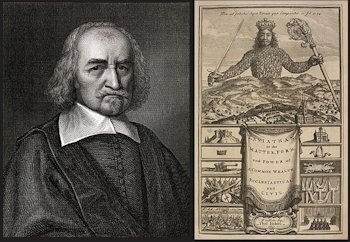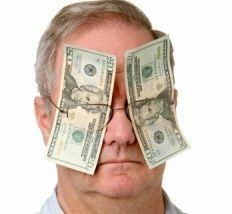Thomas Hobbes Thought
Philosophy / / July 04, 2021
Thomas Hobbes, who was born in Malmesbury England on April 5, 1588 and who died on December 4, 1679, was a British philosopher who through his work "Leviathan" established the general principles of modern political philosophy.
His philosophy defended the theory of absolutism as a form of government but supported the monarchy as the ideal government.

Thomas Hobbes could be classified as a philosopher of natural law "natural law”, As it was the most widespread and accepted philosophy of the time.
In the philosophy of Thomas Hobbes, a series of parameters were presented that should be taken into consideration:
- Reason as a means of overcoming
- Social contract
- Competition or violent man
- The monarchy as a means of government
- The leviathan (the devil government)
1.- Reason as a means of improvement:
In Hobbes's philosophy, reason is the only way to unite the universe, culture and nature, which explained that it is the people who reason who could understand the world.
2.- Social contract:
His philosophy focuses on the social contract, which is the basis of the modern state, where the social will was legitimized through agreements, an aspect that can be seen in his book "Leviathan."
3.- Competition or violent man:
In Thomas Hobbes's philosophical concept, human beings are all equal and he held that intelligence and the reason was obtained by experience and essentially men were born equal, surpassing themselves individually.
But for Hobbes, a natural phenomenon of the human being was presented, which he classified as competition, which can be considered as “competition for life”. And while Aristotle saw man as a “social animal”, Thomas Hobbes argued that society arises from an artificial agreement, based on one's own interest that seeks security out of fear of others and it is through this agreement that the State or Republic.
4.- The monarchy as a means of government
Although in Hobbes's time, the libertarian intention of wars was had, and the concept of free government began, he supported the monarchy as the ideal government, in which the ruling “state” was chosen by the population through the social contract in which they reflected their will to be guided by the monarch.
In this sense, Tomás Hobbes has a clear concept that the government "State" is indispensable for the correct function. of society and the social contract consists of the acceptance or legacy of responsibilities and order to the king, (Monarchy).
Hobbes states that in the “state of nature"Man lives a war of all against all and it is this same man, even in the state of nature, who continues to be a rational being and tends to overcome disorder and insecurity. In order to achieve his safety and overcome the danger that the state of nature implies, "individuals assign their rights in favor of a third party", the "Leviathan”.
For this act to make sense, the session of rights to the State must be final. Rights cannot be recovered, that is, the State is omnipotent. This sovereign state is the sole source of law, morality and religion.
Hobbes understood that just as mechanical impulse and shock are the determining factors of the movement of physical objects, so in social life are utility and the appetite for power.
Thomas Hobbes and John Locke:
The philosophical concepts of Thomas Hobbes and John Locke are diametrically opposed, and we compare Thomas Hobbes and the political concept of him, against the thought of John Locke, we will see that Tomás Hobbes, considered the human being as a bad entity, who prepares and has war in his nature and it is until the "leviathan" appears that the state of war.
While John Locke deduces his theories from the goodness of the human being, where they were associated by the common good, but what does coincide is that the two establish the natural state as the basis of the society. John Locke was very much in agreement with Jean Jacobo Rousseau, who considered man to be innocent and his nature is only to survive. But it can be classified as an intermediate state, something that leaves it in the center between Thomas Hobbes and John Locke.



